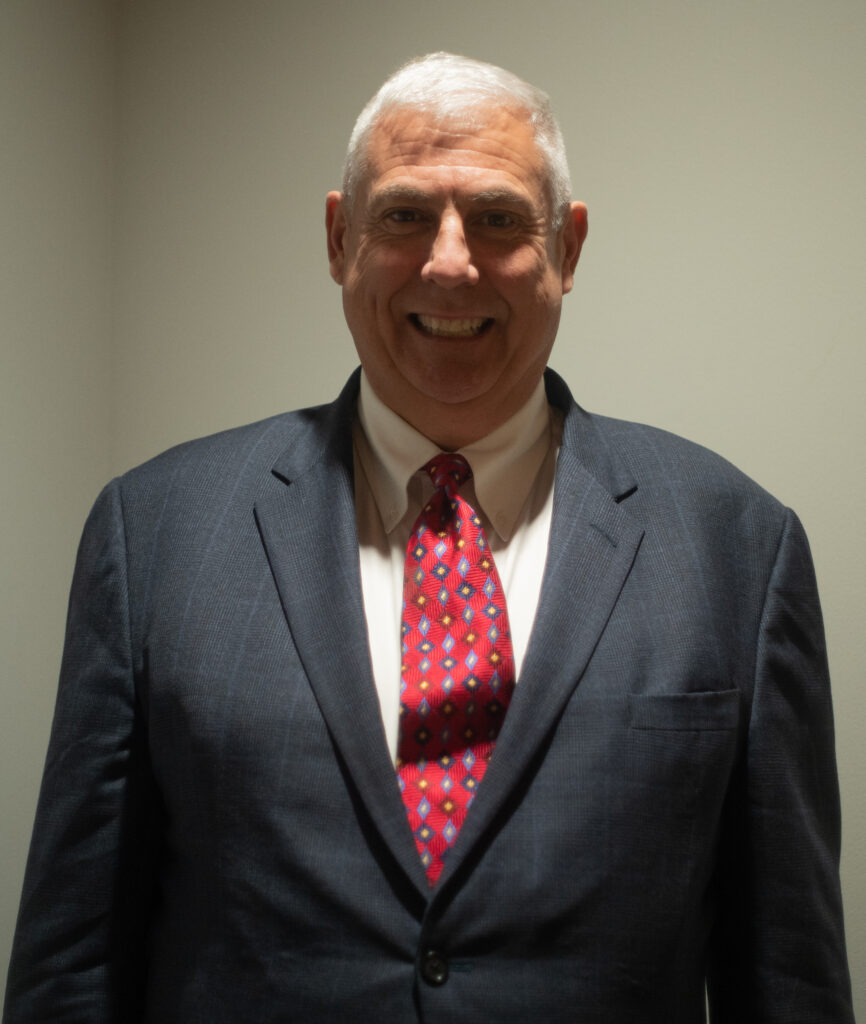Danny Sebright Inspires Connections Between Gettysburg Students and the Middle East
By Laurel Bennett, Staff Writer

Danny Sebright, leader of the Eisenhower Institute program Contours of the Middle East (Photo WIll Oehler/The Gettysburgian)
Danny Sebright currently serves as the President of the U.S.-U.A.E. Business Council, but he is also the leader of the Eisenhower Institute (EI) program Contours of the Middle East. He previously served as an intelligence officer and policy analyst on the Middle East Peace Process with President Clinton and President Bush, as well as a U.S. diplomat in numerous U.S. Embassies. Sebright also worked in the private sector for Secretary William S. Cohen with The Cohen Group and received the Department of Defense Exceptional Civilian Service Award for his service.
Before his career in international affairs, Sebright grew up on a family farm with Gettysburg College in his backyard. After leaving the area for college and to build his own career, he returned to Gettysburg around fifteen years ago. Sebright has traveled to over 120 countries and has lived in approximately ten, ultimately making a “full-circle” back to his origins in Gettysburg.
After Sebright returned to Gettysburg, EI Expert-in-Residence Susan Eisenhower recommended that he become involved with EI by serving on the EI National Advisory Council. This ultimately led to him teaching Contours of the Middle East.
Given Sebright’s background in the military, intelligence, politics, and business, he often considers the impact of these factors on international relationships, especially with the U.S.’s influence in the Middle East.
Sebright explained that through his work with The Business Council he, “works with the private sector to promote business by helping them understand what are the priorities of the U.S. and U.A.E. governments, pushing the relationship forward in the future.”
Sebright has continued to share his experiences and knowledge through his role as a guest lecturer with EI. His program serves as a survey of current issues in the Middle East through an American perspective.
“We cover political, military, strategic, economic, and economic drivers, as well as cultural and societal changes, like the role of women in society and growing tolerance with the acceptance of all religions,” Sebright said.
Guest speakers have included current and former U.S. government officials, such as ambassadors and generals, who bring their perspectives about working in the Middle East. Additionally, Sebright arranges meetings with foreign diplomats and think tank leaders to provide diverse views. The program also centers around how large global events bring awareness of the Middle East to U.S. society.
According to Sebright, one component of the program’s success has been its experiential learning opportunity, which occurs through an annual tour of the Middle East. This year, participants traveled to Israel and the U.A.E. over spring break.
Sebright explained that the Middle East has changed in a positive manner due to the Abraham Accords, which recognize Israel’s sovereignty and emphasize the importance of maintaining and strengthening peace in the Middle East in order to move past the historic Arab-Israeli conflict.
Regarding the program’s impact, Sebright shared, “It’s important for me if I can help positively influence the way just one or two students think about the Middle East.”
Sebright’s influence extends beyond the program, including giving a student an internship with his own organization in his first year. “I’ve helped at least two or three students get internships and jobs every semester,” Sebright said. “Going forward, my interest is to work directly with the students to provide opportunities for learning and growth.”
Through his position within EI, Sebright enjoys informing students about the Middle East and helping students to further their own careers in diplomacy and national security.
This article originally appeared on page 15 of the March 2023 edition of The Gettysburgian’s magazine.
